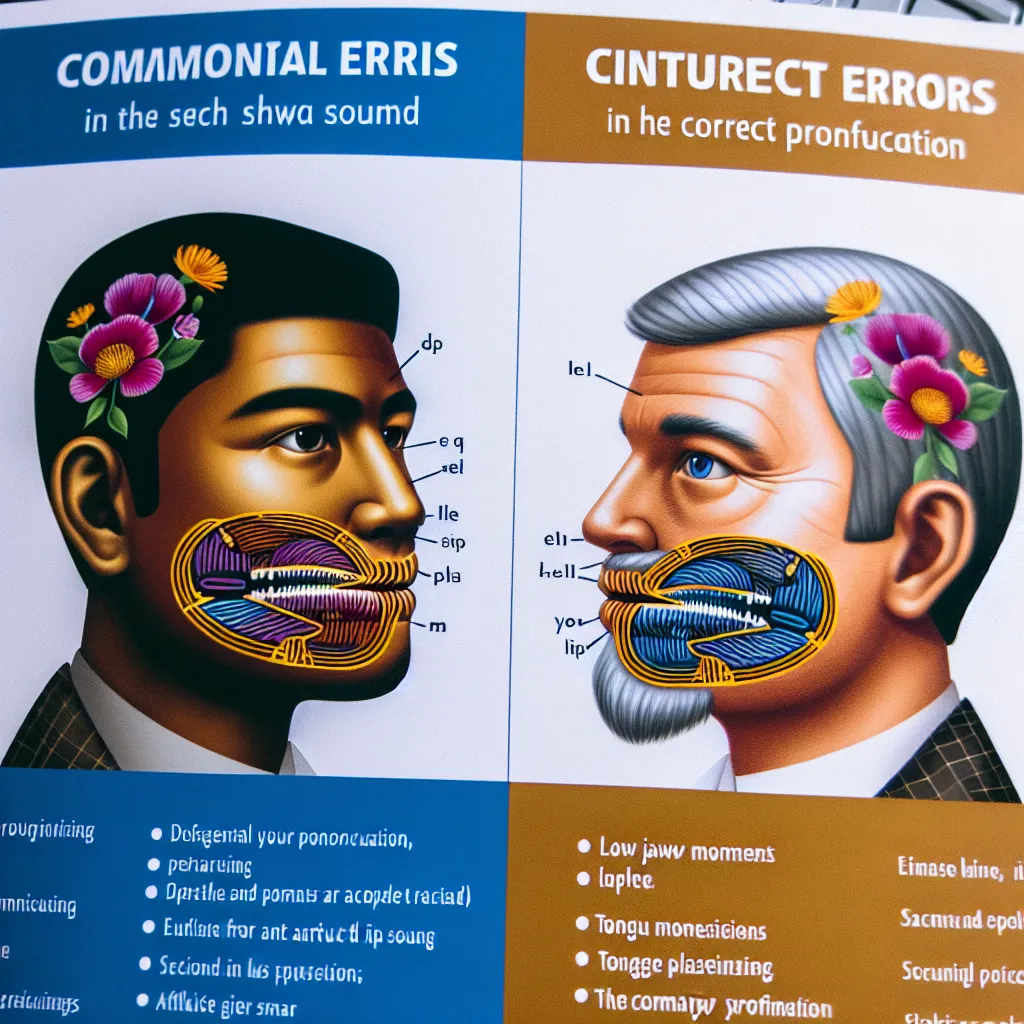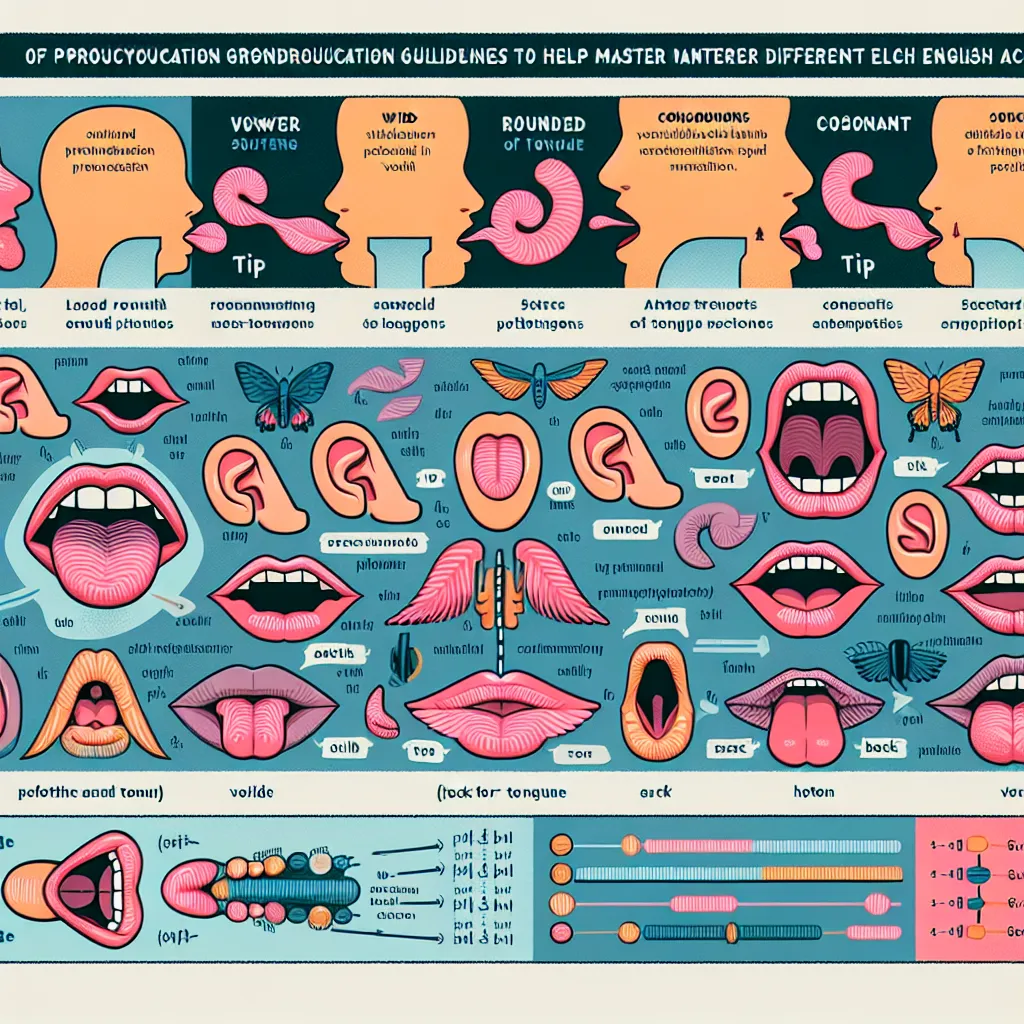Mastering the English schwa sound is a crucial step towards achieving natural and fluent pronunciation. The schwa, represented by the symbol /ə/ in the International Phonetic Alphabet (IPA), is the most common vowel sound in English. It’s often described as a ‘lazy’ or ‘relaxed’ vowel, occurring in unstressed syllables. For non-native speakers, mastering this sound can significantly improve their overall English pronunciation and comprehension.
 Schwa Sound in English
Schwa Sound in English
Understanding the Schwa Sound
What is the Schwa Sound?
The schwa is a neutral, unstressed vowel sound that appears in many English words. It’s pronounced with the mouth in a relaxed, neutral position. The sound is similar to the ‘uh’ in ‘duh’ or the ‘a’ in ‘about’.
Why is the Schwa Sound Important?
- Frequency: It’s the most common vowel sound in English.
- Rhythm: Proper use of schwa helps maintain the natural rhythm of English speech.
- Comprehension: Correct pronunciation of schwa aids in being understood by native speakers.
Common Words with Schwa Sound
Here are some examples of words containing the schwa sound:
- About (/əˈbaʊt/)
- Banana (/bəˈnænə/)
- Telephone (/ˈtelɪfəʊn/)
- Problem (/ˈprɒbləm/)
- Circus (/ˈsɜːkəs/)
Tips for Mastering the Schwa Sound
1. Listen and Imitate
One of the best ways to improve your pronunciation of the schwa sound is through active listening and imitation. Listen to native speakers, podcasts, or English language learning materials that focus on pronunciation. Pay close attention to unstressed syllables and try to mimic the sounds you hear.
2. Practice with Minimal Pairs
Minimal pairs are words that differ by only one sound. Practicing with minimal pairs can help you distinguish between the schwa and other vowel sounds. For example:
- ‘affect’ (/əˈfekt/) vs ‘effect’ (/ɪˈfekt/)
- ‘accept’ (/əkˈsept/) vs ‘except’ (/ɪkˈsept/)
3. Use a Mirror
Practice in front of a mirror to observe your mouth position. When pronouncing the schwa, your mouth should be relaxed and slightly open, with your tongue in a neutral position.
4. Focus on Word Stress
Understanding word stress is crucial for mastering the schwa sound. In multi-syllable words, the schwa often appears in unstressed syllables. For example:
- TElephone (ˈtelɪfəʊn) – the ‘e’ in the last syllable is a schwa
- baNAna (bəˈnænə) – the first ‘a’ is a schwa
5. Use Phonetic Transcriptions
Familiarize yourself with phonetic transcriptions in dictionaries. Look for the /ə/ symbol to identify where the schwa sound occurs in words.
Common Mistakes and How to Avoid Them
- Over-pronouncing unstressed syllables: Remember that the schwa is a relaxed sound. Don’t give it too much emphasis.
- Confusing schwa with other vowel sounds: Practice distinguishing between schwa and short vowel sounds like /ɪ/ or /ʊ/.
- Ignoring schwa in fast speech: Even in rapid conversation, maintain the schwa sound to preserve natural rhythm.
 Common Schwa Pronunciation Mistakes
Common Schwa Pronunciation Mistakes
Exercises to Improve Schwa Pronunciation
- Shadow Reading: Read aloud along with a native speaker, focusing on matching their rhythm and stress patterns.
- Record Yourself: Record your pronunciation and compare it with native speaker recordings.
- Schwa Spotting: Practice identifying the schwa sound in everyday conversations or while watching English media.
The Phonemic Chart and Schwa
The phonemic chart is an essential tool for mastering English pronunciation, including the schwa sound. Here’s a simplified version focusing on vowel sounds:
/iː/ /ɪ/ /e/ /æ/
/ʌ/ /ɑː/ /ɒ/ /ɔː/
/ʊ/ /uː/ /ɜː/ /ə/
The schwa (/ə/) is positioned at the center, reflecting its neutral nature.
10 Commonly Mispronounced Words with Schwa
- Comfortable (/ˈkʌmftəbəl/) – not “comf-tor-table”
- Chocolate (/ˈtʃɒklət/) – not “choc-o-late”
- Different (/ˈdɪfrənt/) – not “diff-er-ent”
- Camera (/ˈkæmərə/) – not “cam-er-a”
- Vegetable (/ˈvedʒtəbəl/) – not “veg-e-table”
- Temperature (/ˈtemprətʃər/) – not “tem-per-a-ture”
- Interesting (/ˈɪntrəstɪŋ/) – not “in-ter-est-ing”
- Family (/ˈfæməli/) – not “fam-i-ly”
- Favorite (/ˈfeɪvərɪt/) – not “fav-or-ite”
- Literacy (/ˈlɪtərəsi/) – not “lit-er-a-cy”
Practice these words, paying attention to the schwa sound in the unstressed syllables.
Conclusion
Mastering the English schwa sound is a key step in improving your overall pronunciation and achieving a more natural, native-like accent. By understanding its importance, practicing regularly, and avoiding common mistakes, you can significantly enhance your English speaking skills. Remember, consistency is key in pronunciation practice. Incorporate these tips into your daily English learning routine, and you’ll soon notice a marked improvement in your pronunciation of the schwa sound and overall fluency.
For more tips on improving your English pronunciation, check out our articles on best techniques for accurate English pronunciation and pronunciation strategies for better English speaking.




